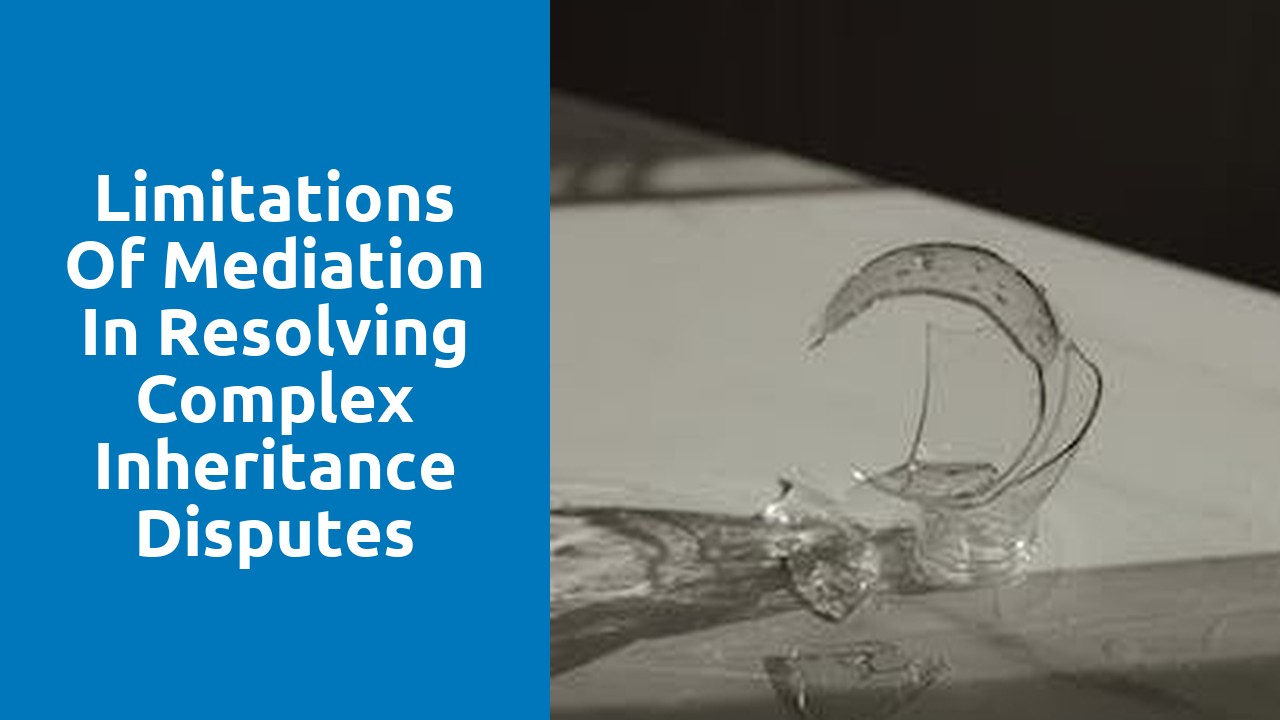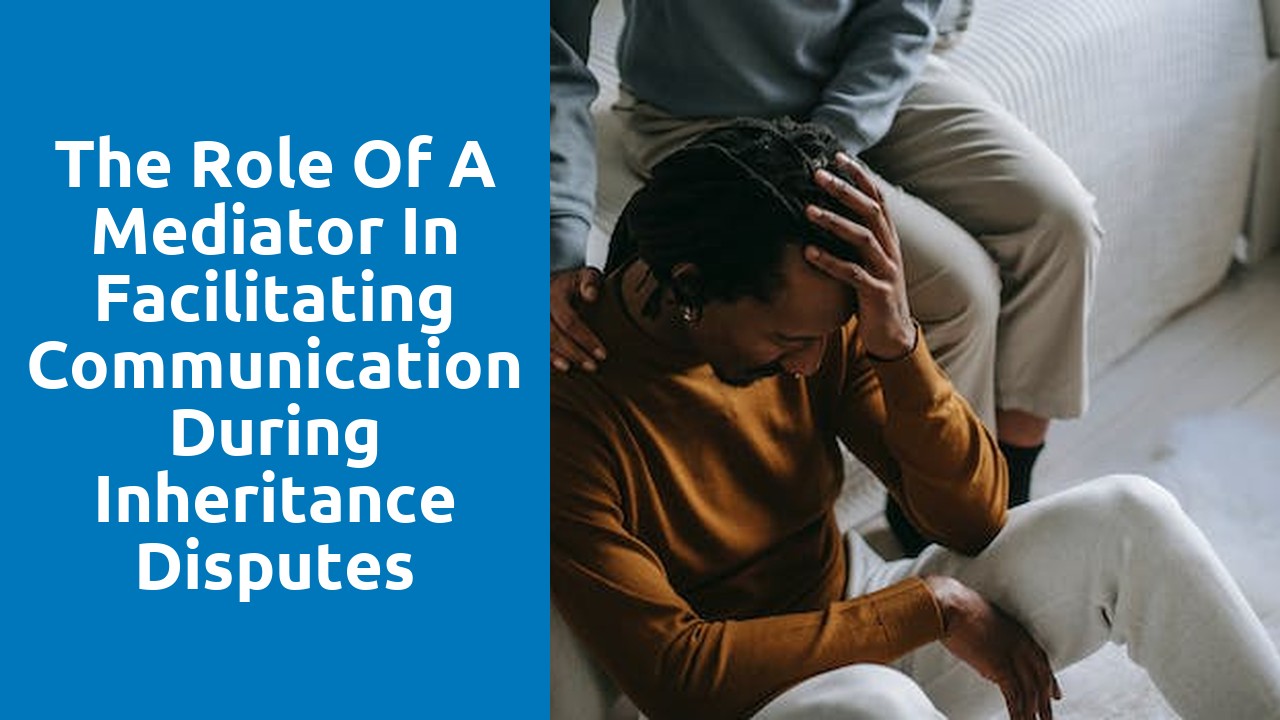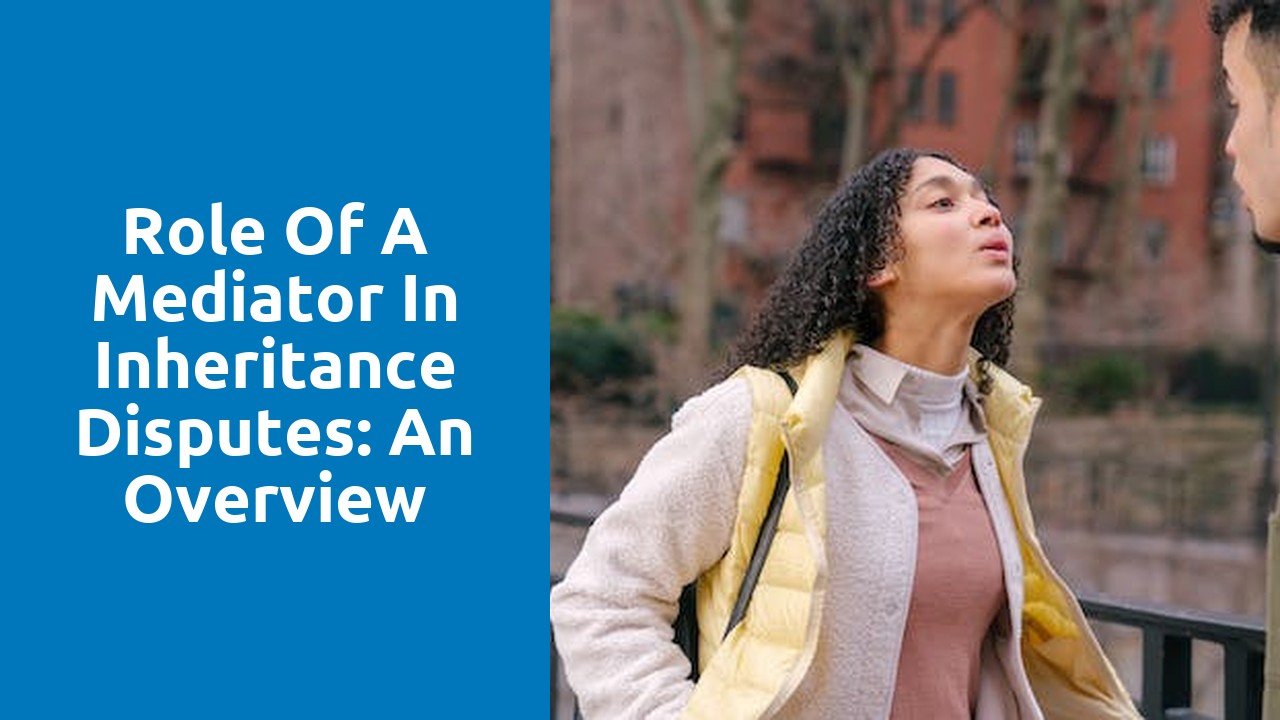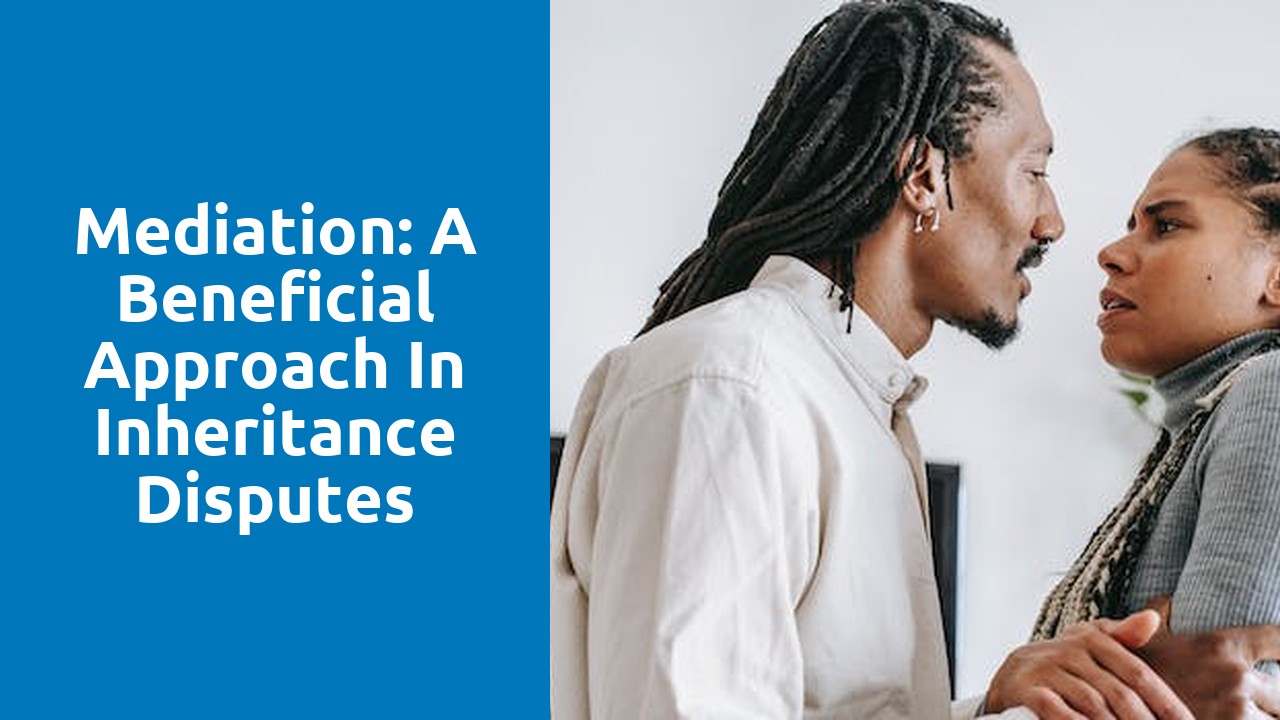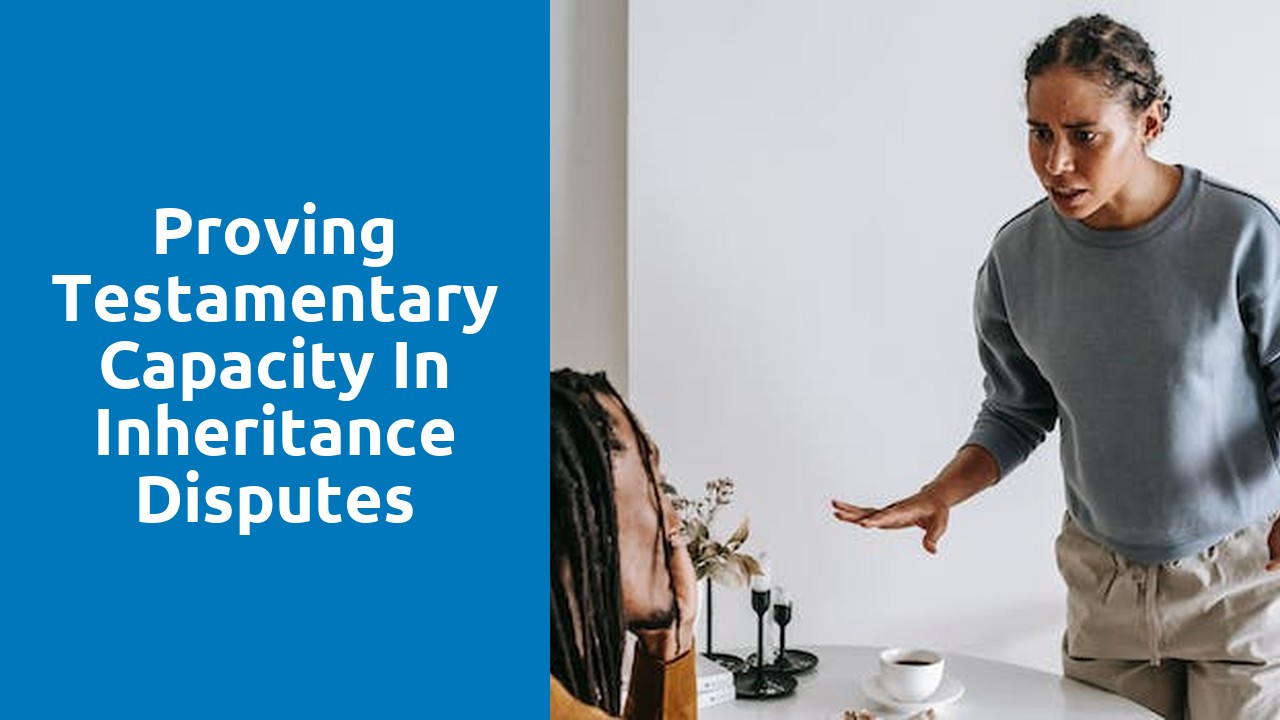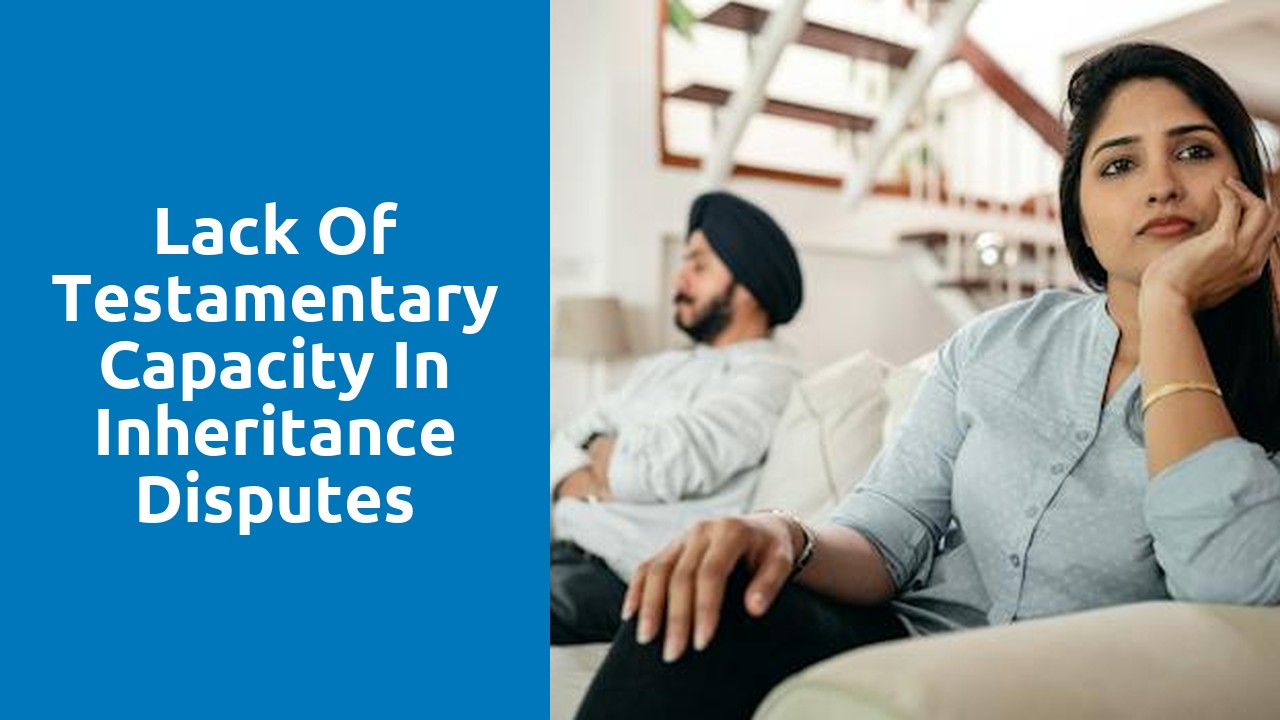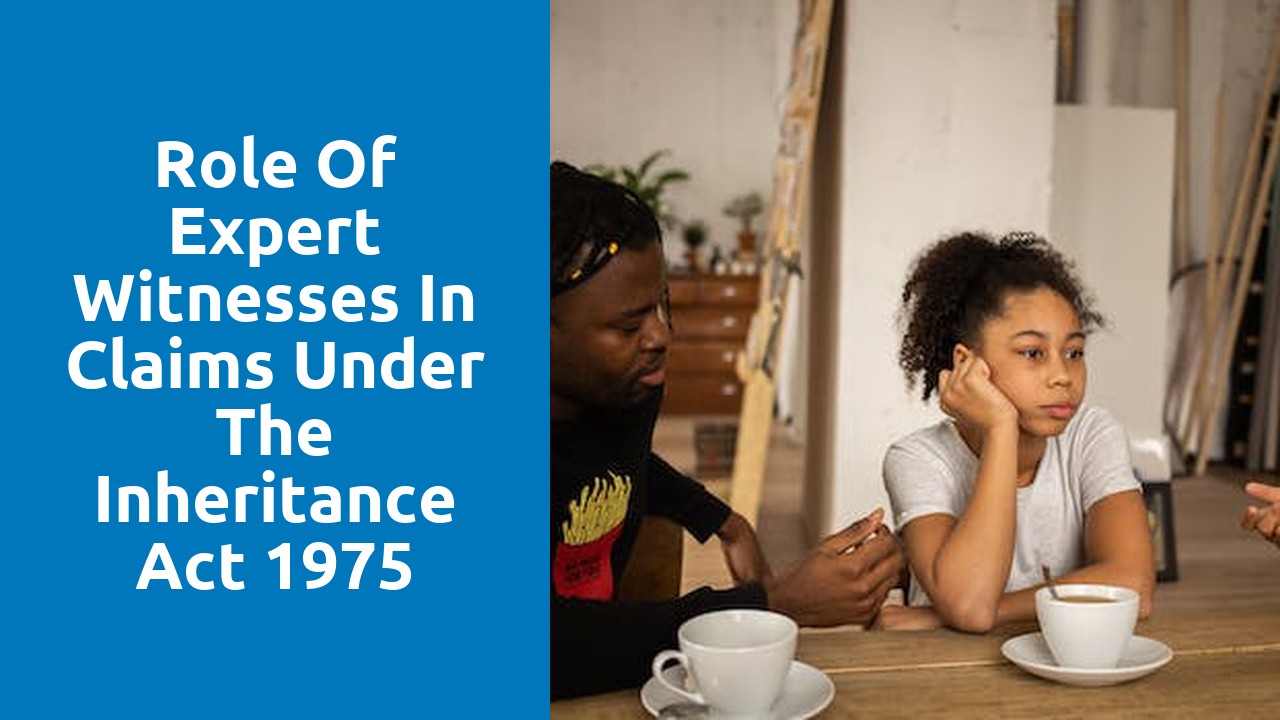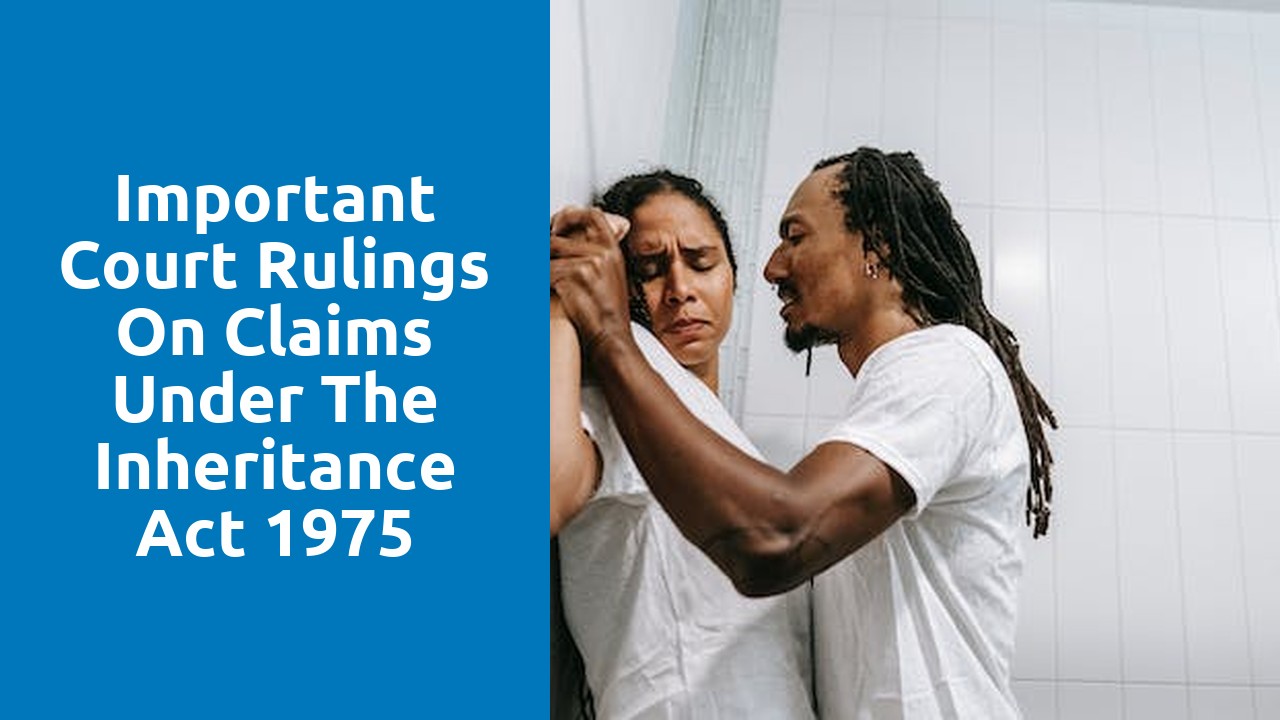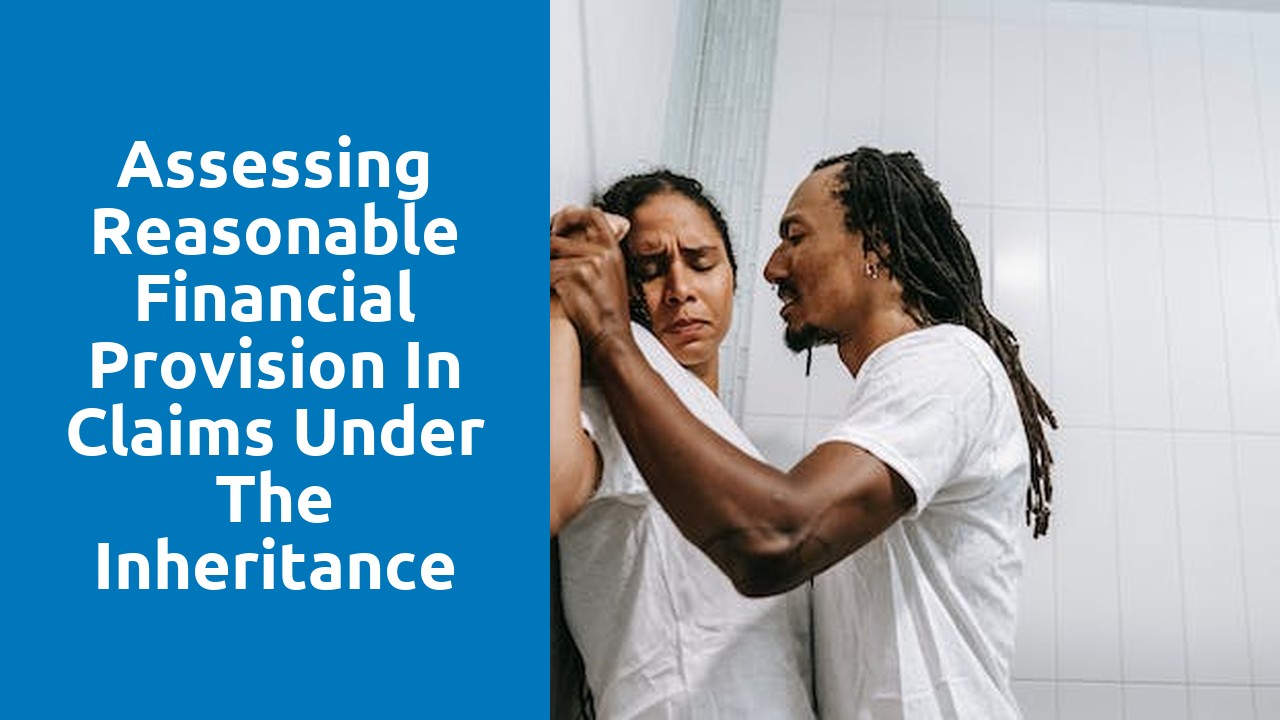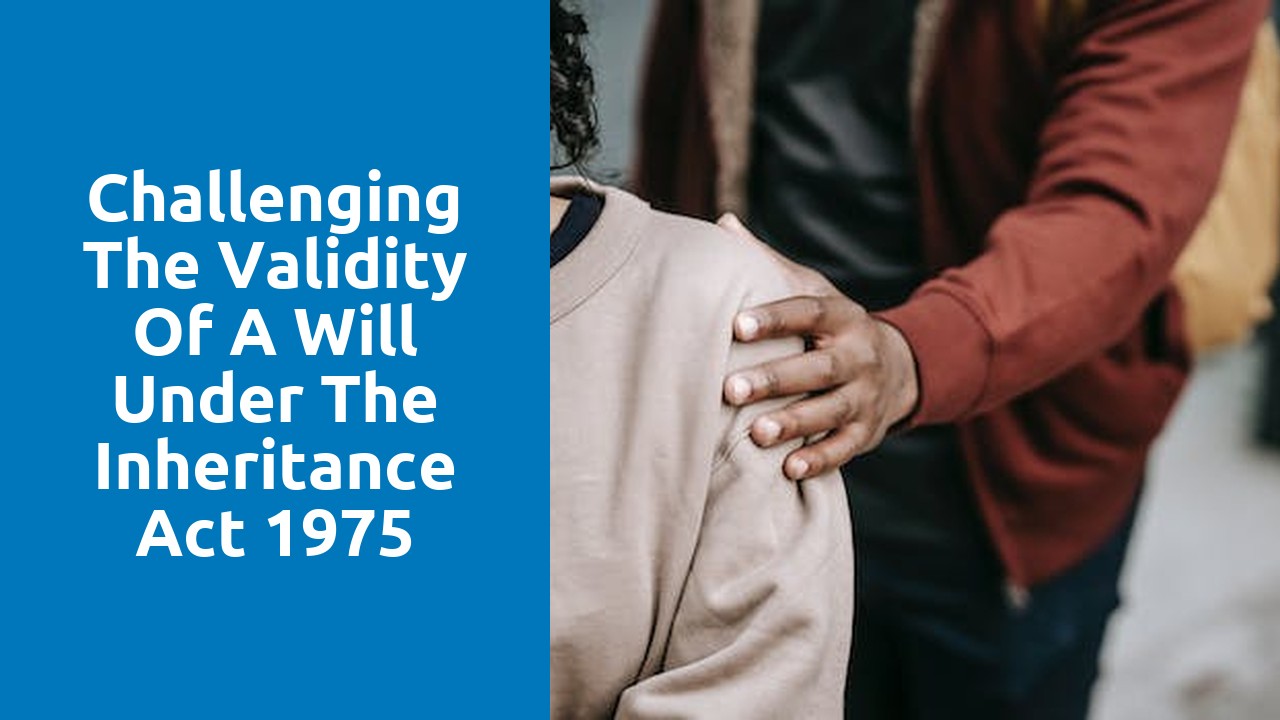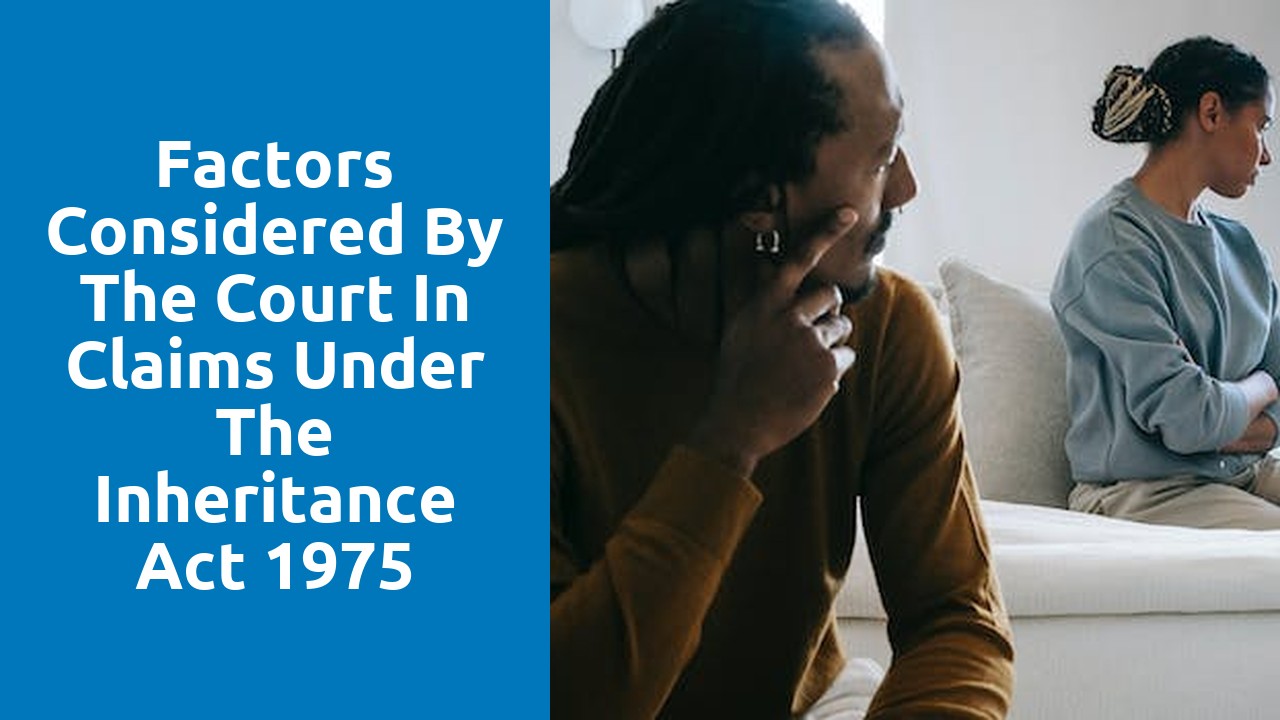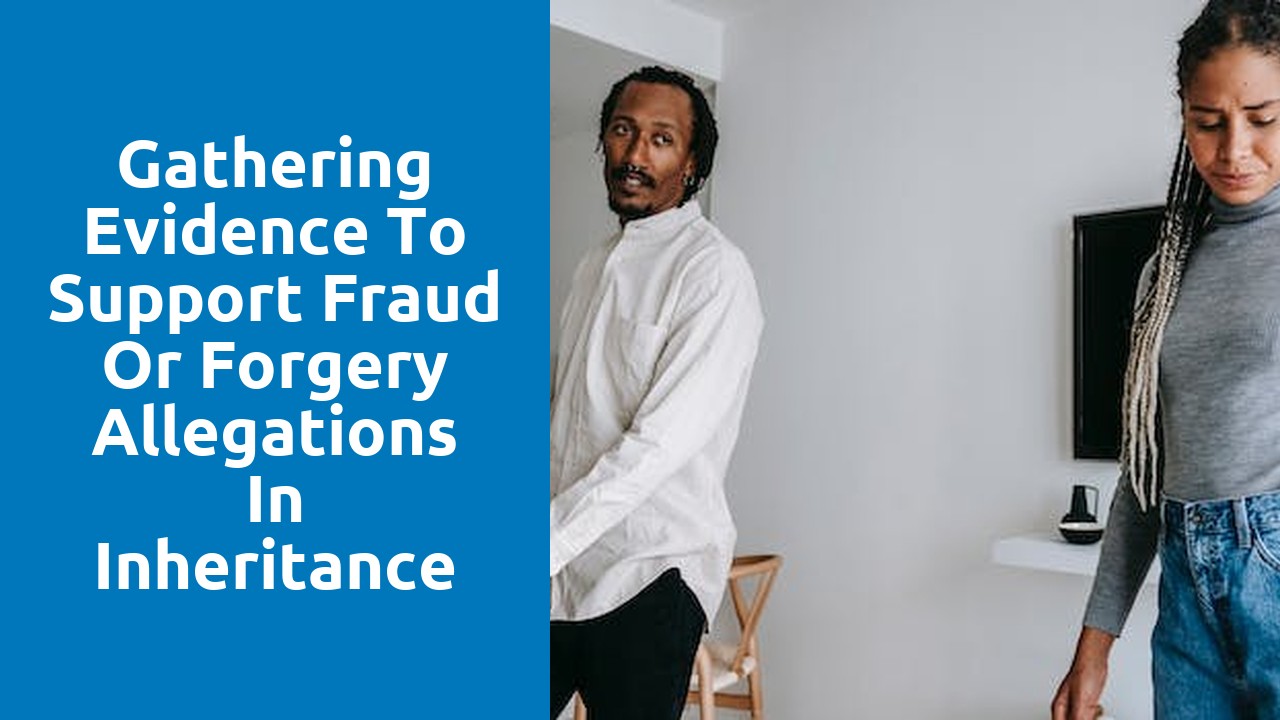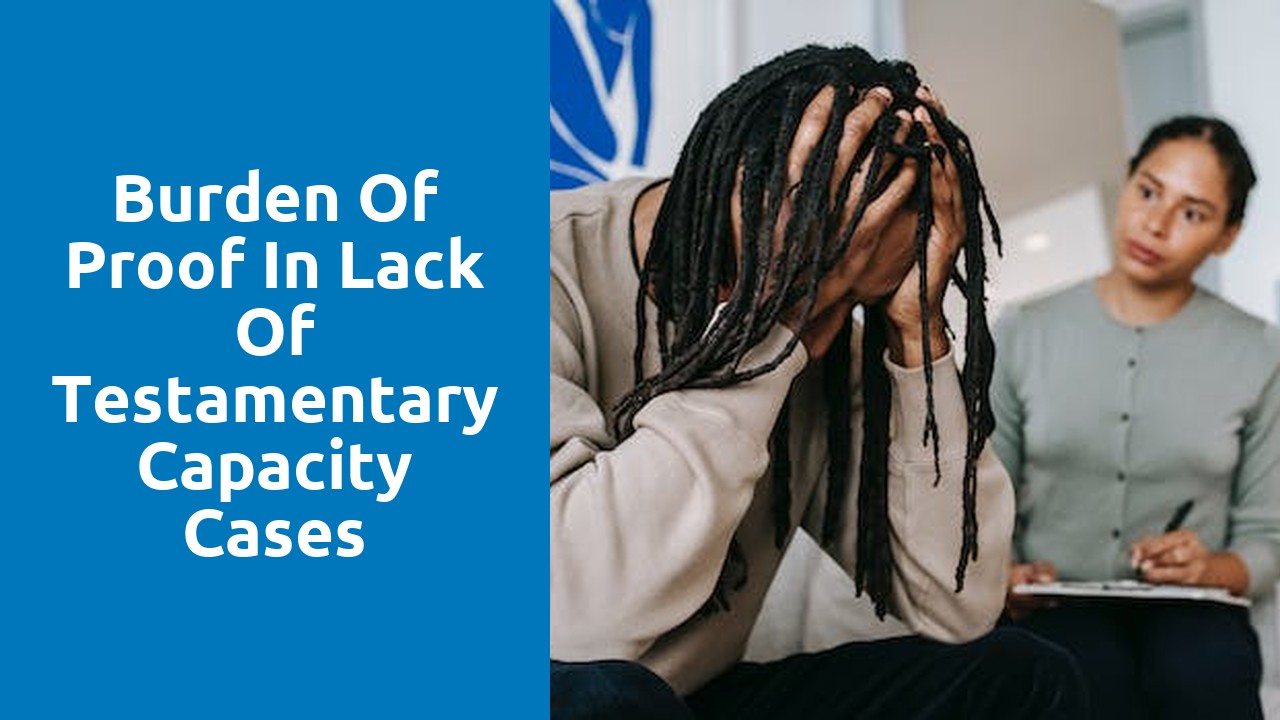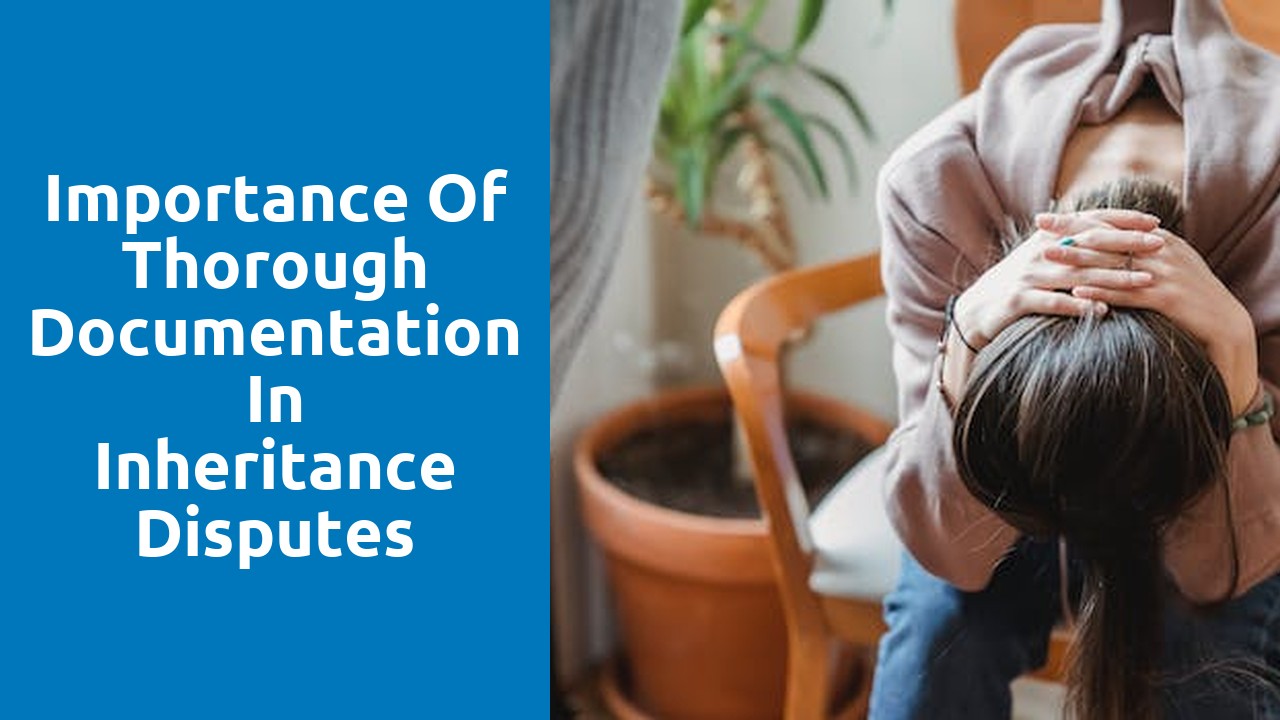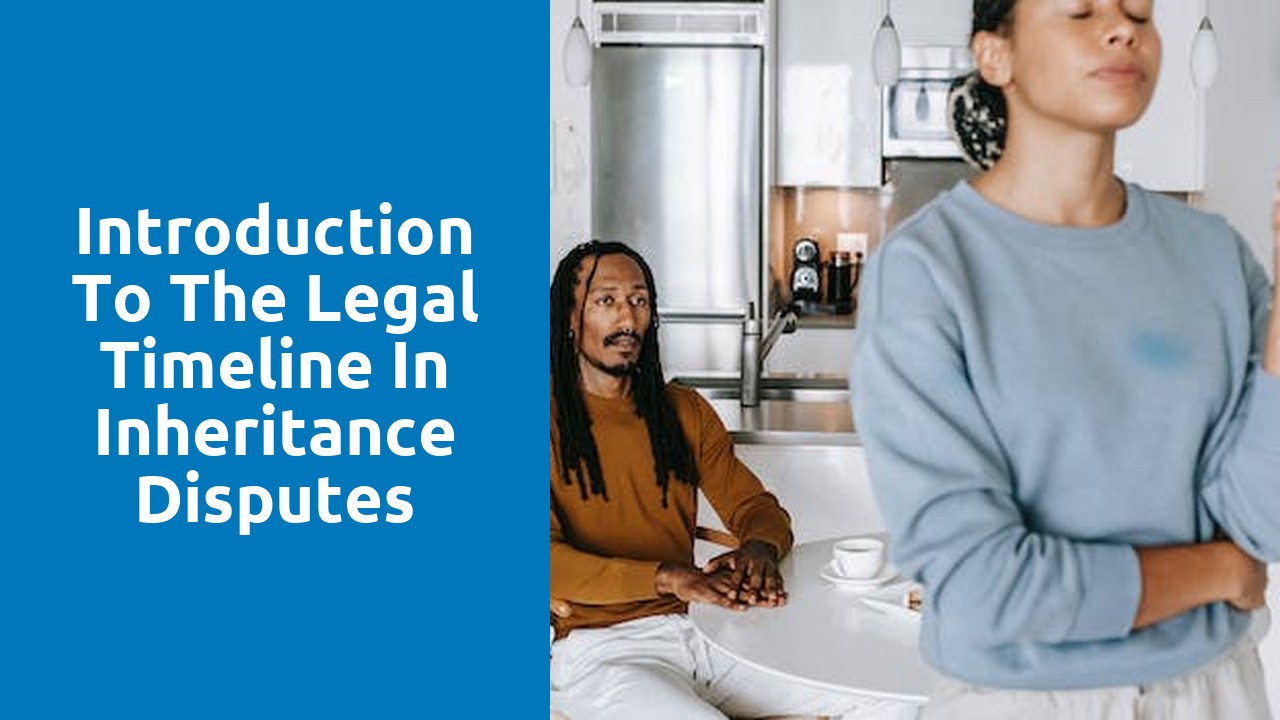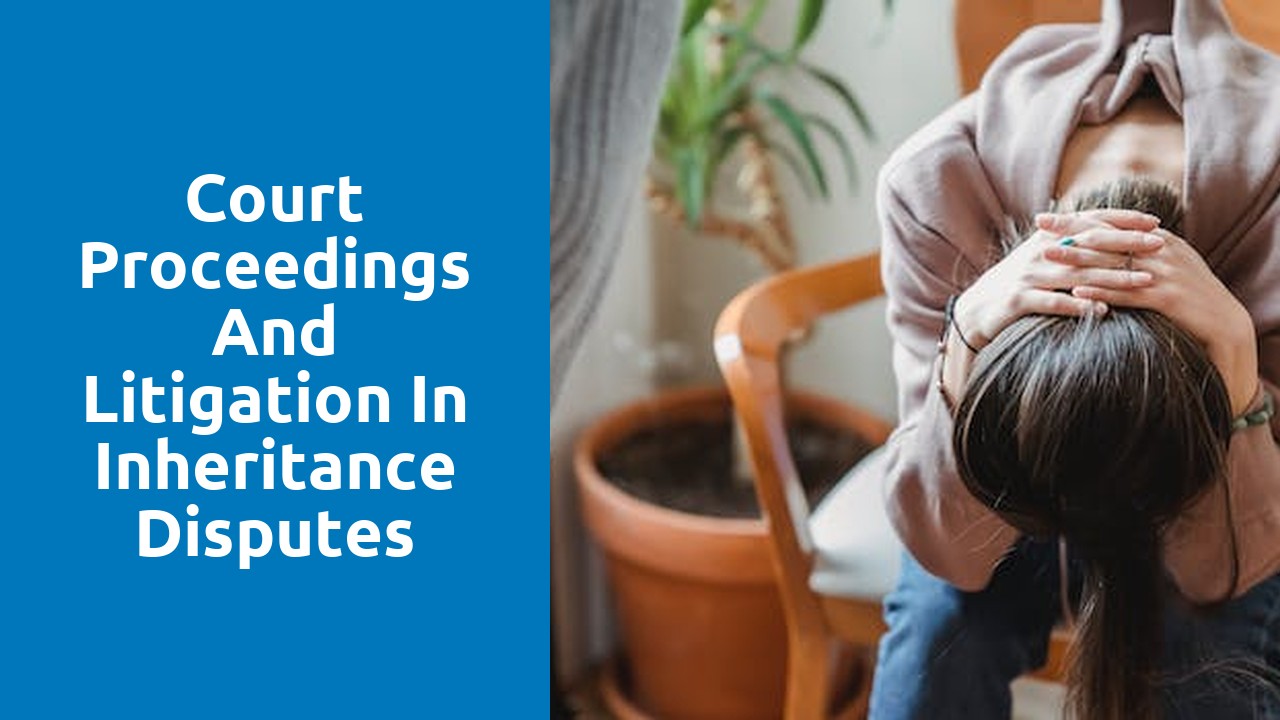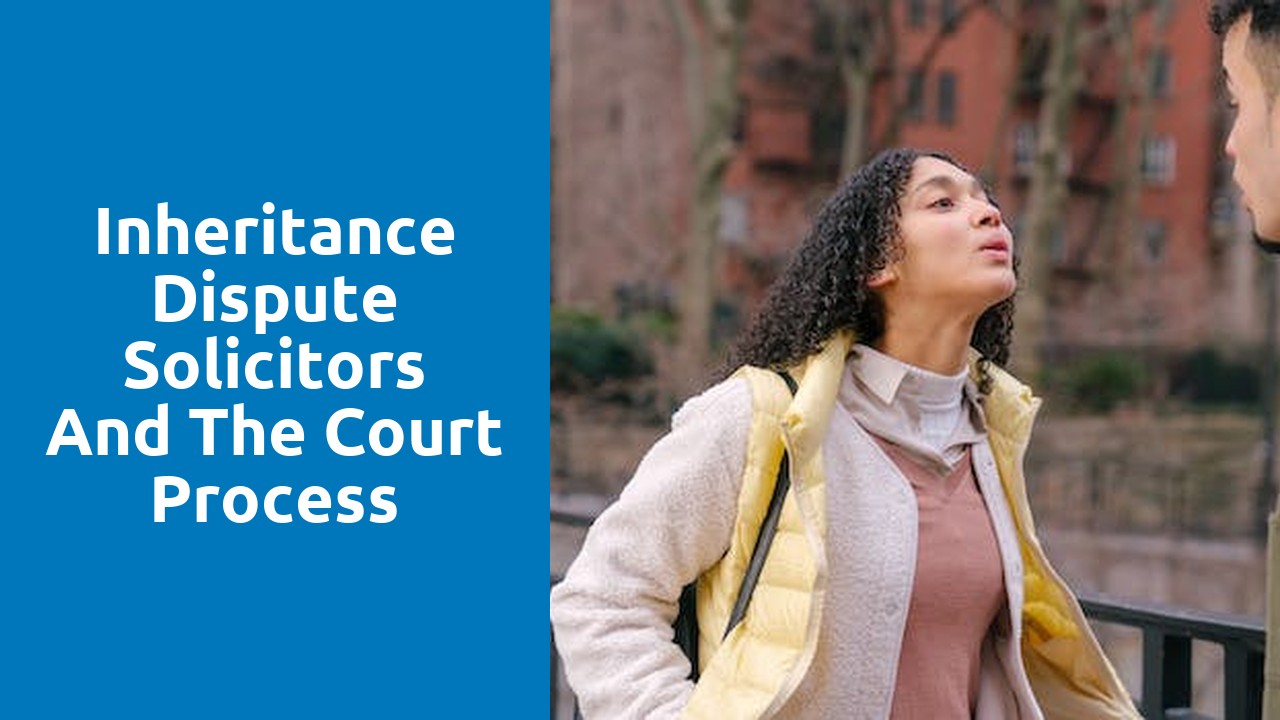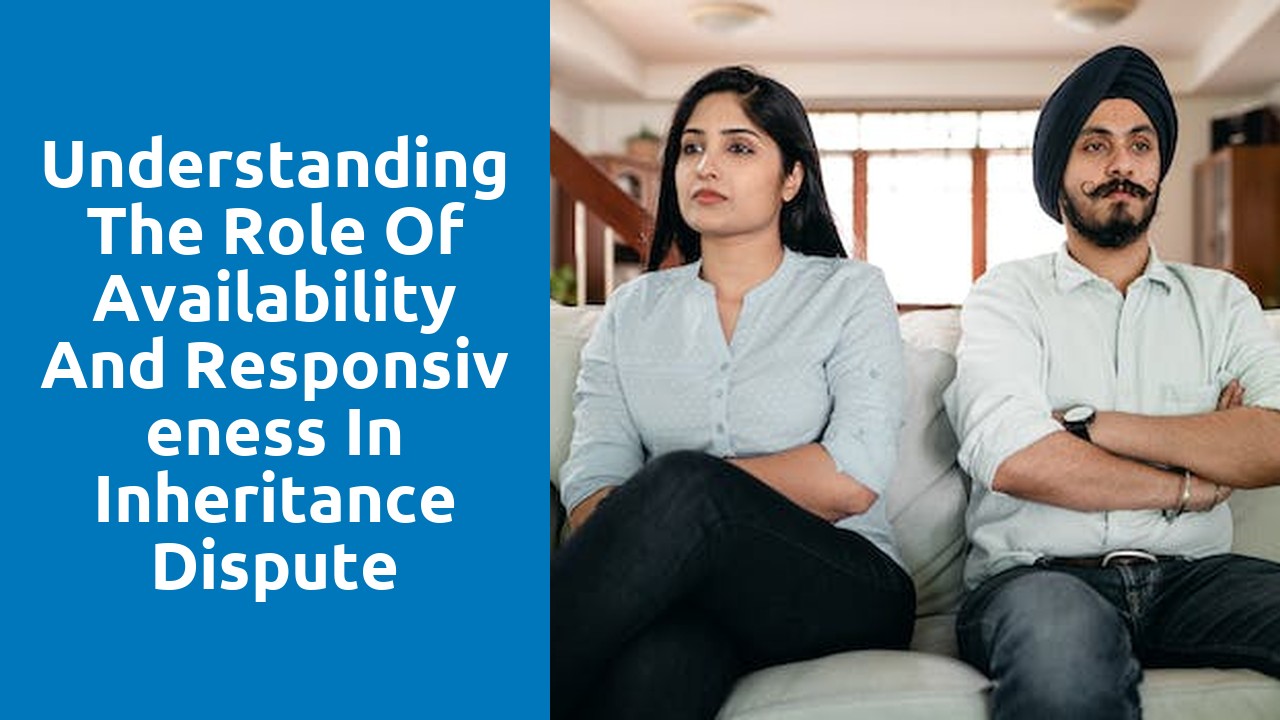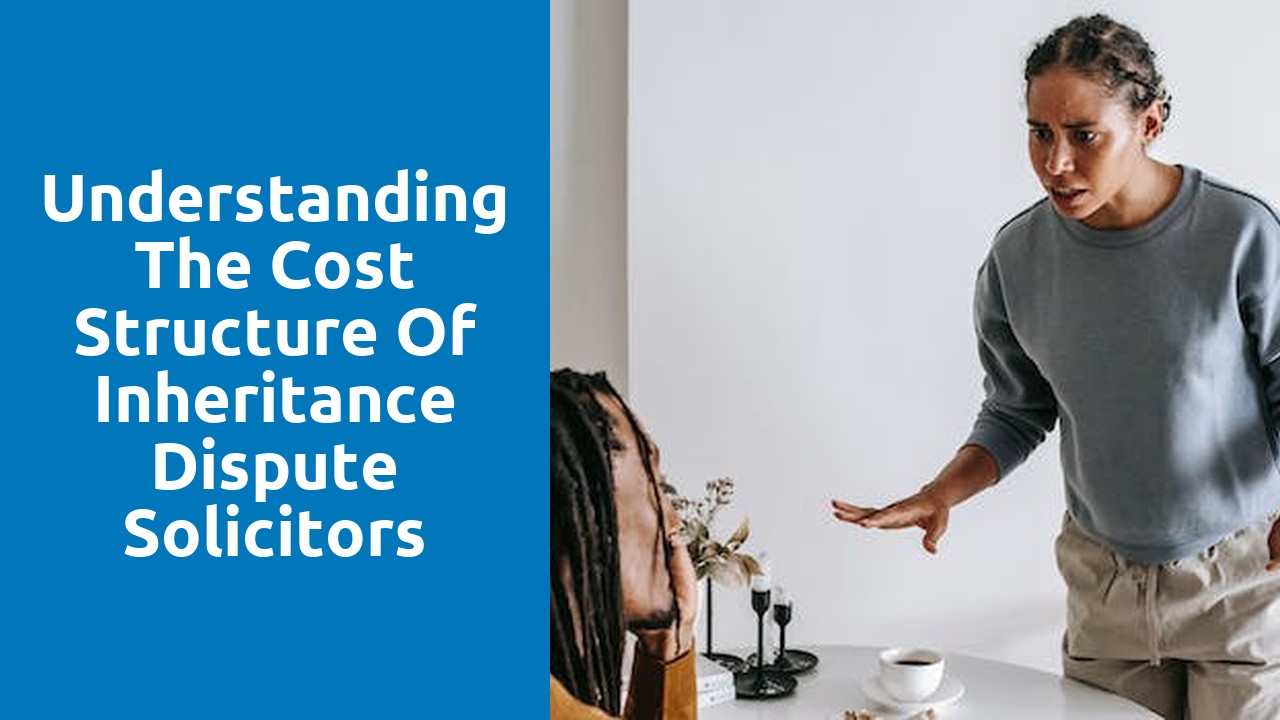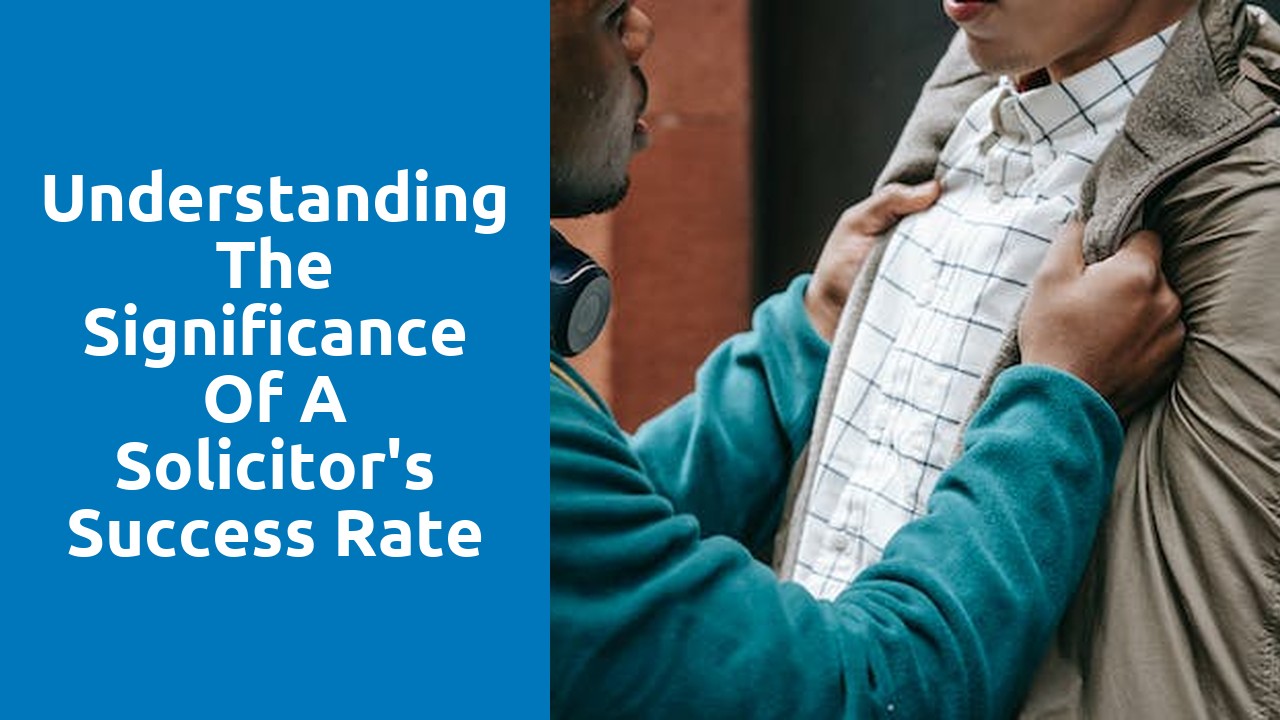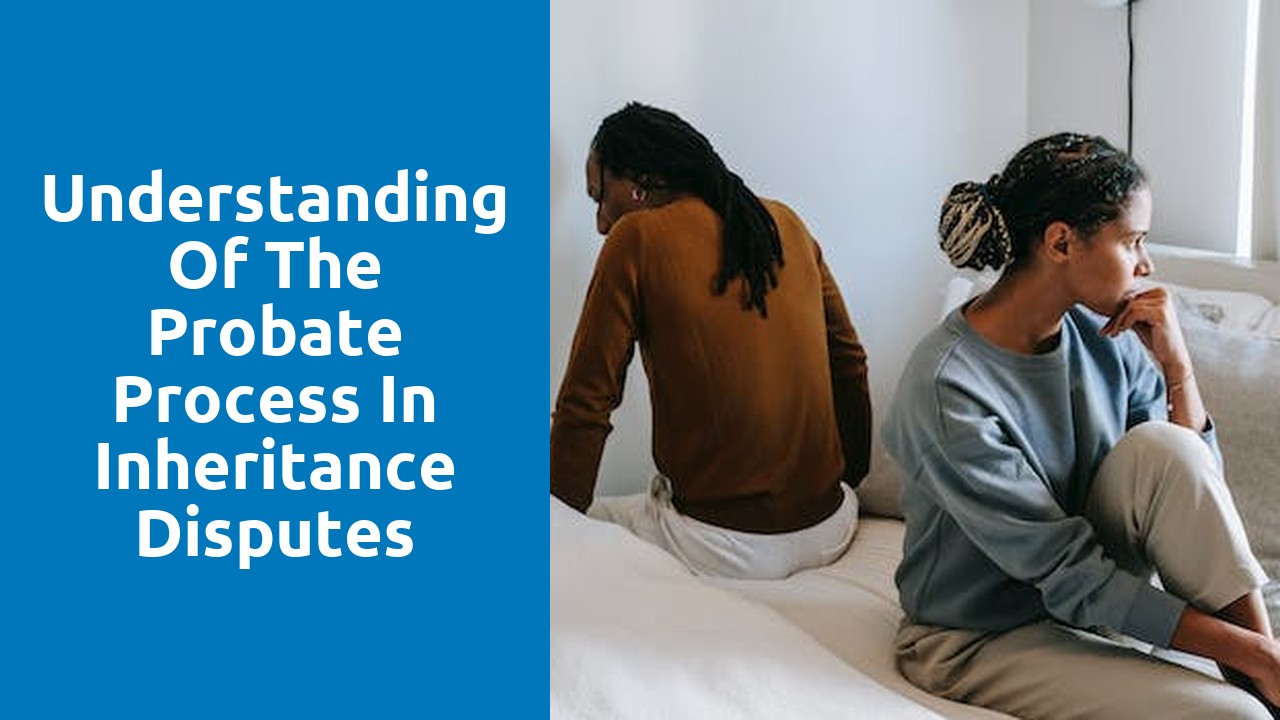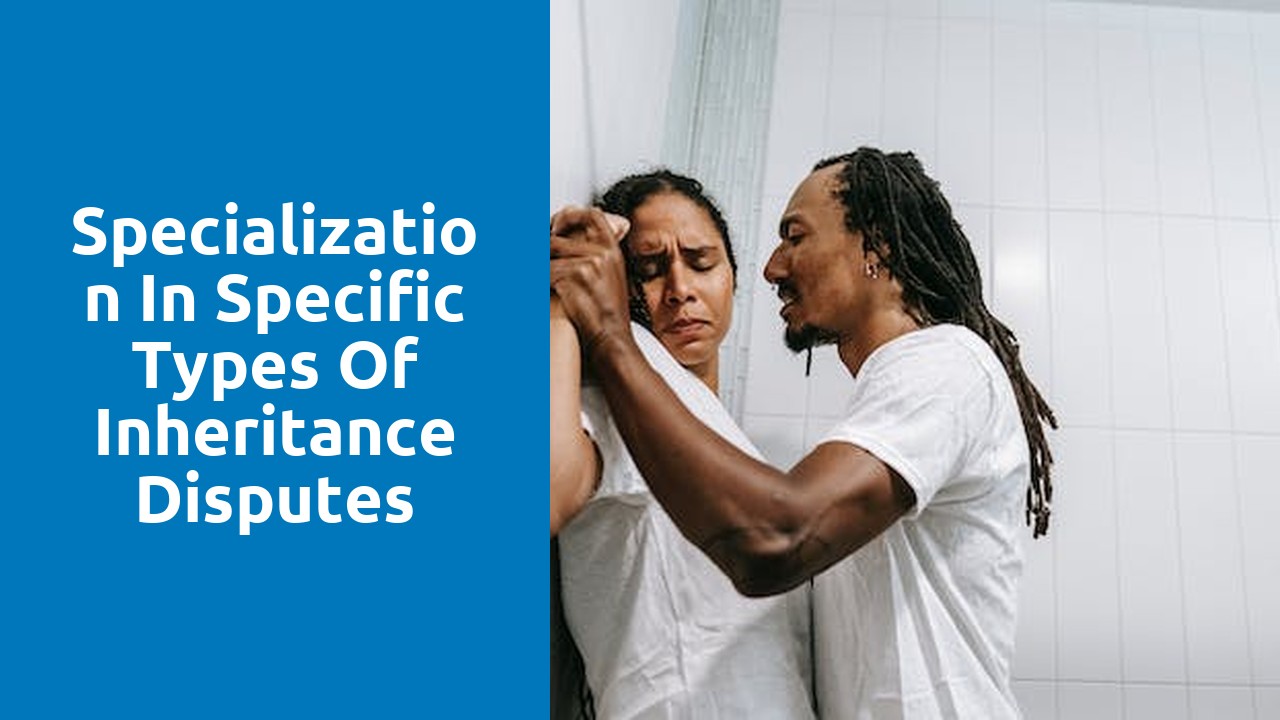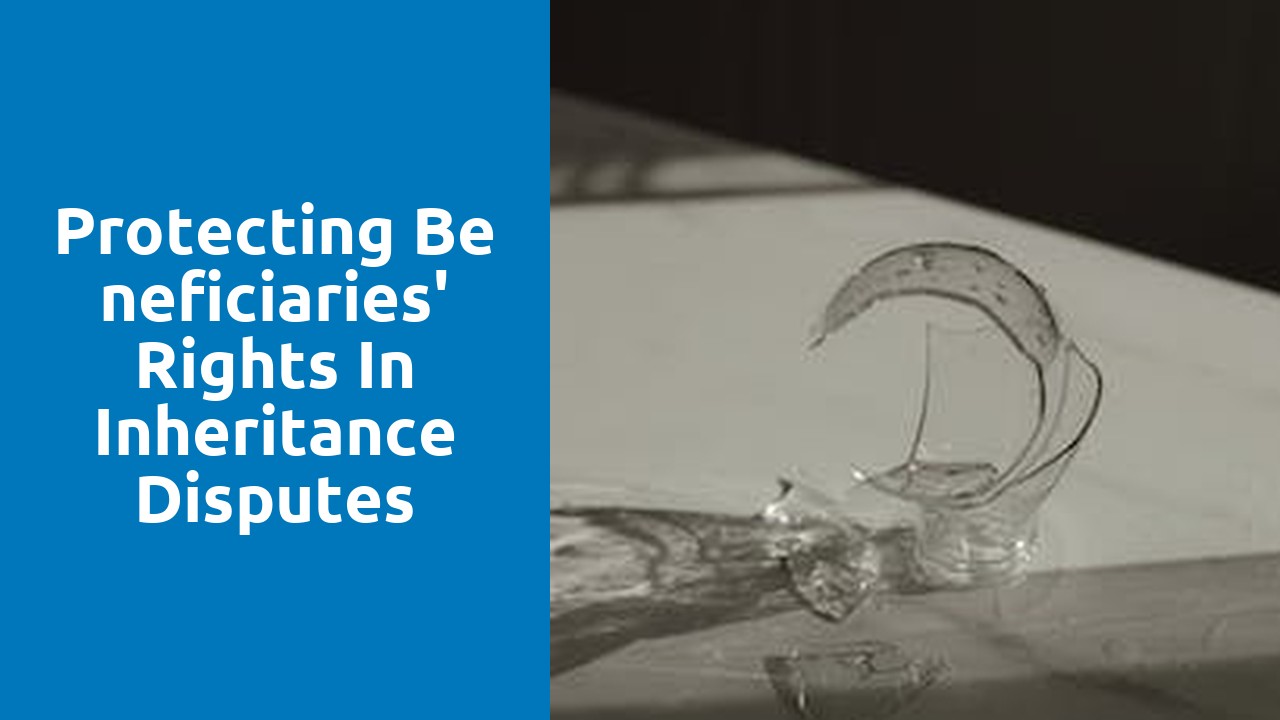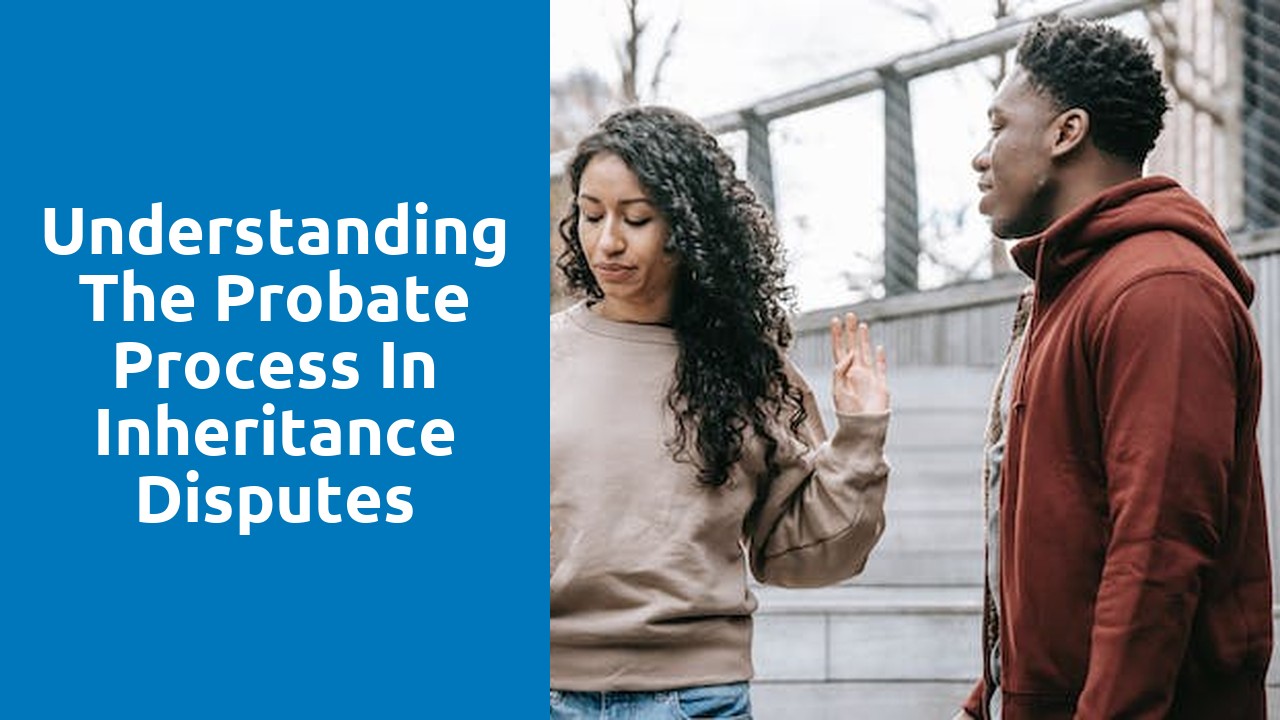Inheritance Dispute Solicitors: Navigating the Complexities of Will Contests
When dealing with the passing of a loved one, the last thing you might expect is a dispute over the will or estate. However, inheritance disputes are not uncommon and can arise for various reasons, such as an unexpected will, concerns over the validity of the document, or disagreements amongst beneficiaries. This is where inheritance dispute solicitors like Hibberts Solicitors come into the picture. Their role is to help individuals navigate the often complex process of contesting wills, trusts, and estates, ensuring that your rights are protected and your case is presented effectively.
Specialist solicitors in inheritance disputes, such as those at Kingsley Napley, Ashtons Legal, Stephensons, and Gedye & Sons, offer expertise in a field that requires a nuanced understanding of both legal frameworks and sensitive family dynamics. With experience in mediation and litigation, these solicitors, including the dedicated teams at Prettys and BBS Law, aim to resolve conflicts as swiftly and favourably as possible, whether that involves challenging a will's validity, addressing executor or trustee disputes, or making claims under the Inheritance (Provision for Family and Dependants) Act 1975.
It's important to choose a legal representative with a solid track record and a depth of experience in contentious probate. In the UK, several firms, including Hibberts Solicitors, have established a reputation for their specialisation in inheritance disputes, and many are recommended by legal guides such as The Legal 500. Working with a reputed firm like Hibberts Solicitors can significantly impact the outcome of your case, as they can provide expert advice on the best course of action tailored to your unique circumstances, including potential funding options for legal proceedings.
Understanding Inheritance Law
Inheritance law dictates how your assets are distributed after your death, and understanding its fundamentals is crucial for your estate's future.
The Basics of Inheritance Law
Inheritance law, often known as probate law in the UK, governs the distribution of a person's estate after their passing. If you have a valid will, your estate is distributed according to your wishes. However, if you die without a will, known as dying 'intestate,' the rules of intestacy apply. These rules prioritise spouses and civil partners, followed by children, parents, siblings, and other relatives. The importance of creating a clear and legally sound will cannot be overstated; it is a crucial step in managing your assets and mitigating potential disputes.
Legal Hierarchy of Inheritance
The legal hierarchy determines who inherits your assets in the absence of a will. Here is the order:
- Spouse or civil partner: They will inherit the majority or all of the estate, depending on whether there are children or other dependents.
- Children: If there is no surviving spouse, children are the next in line, with the estate divided equally among them.
- Parents: If you have no spouse, children, or grandchildren, your parents will inherit.
- Siblings: They inherit if there are no parents, with nieces and nephews next if siblings are deceased.
- Other relatives: This includes aunts, uncles, and cousins if closer relatives are not living.
Knowing the hierarchy and creating a will that reflects your preferences ascertains that your assets are bestowed as you intend and assists in avoiding potential legal disputes.
Role of Inheritance Dispute Solicitors
Inheritance dispute solicitors specialise in resolving conflicts arising from the distribution of a deceased person's estate. They provide expert guidance and legal representation to ensure your interests are protected.
Assessing Your Case
Inheritance dispute solicitors will thoroughly review the specifics of your case to determine its validity and advise you on the best course of action. They consider factors such as:
- Applicability of the Inheritance Act 1975
- Validity of the will involved
- Presence of any trust disputes
- Executor and beneficiary disputes
- Claims against the estate's assets
Litigation and Negotiation Process
Your solicitor will navigate you through the legal proceedings involved in contesting a will or an estate, which may include:
- Litigation: Representing you in court if the dispute escalates to a trial.
- Negotiation: Engaging in discussions to reach a settlement before or in parallel with litigation.
- Mediation or alternative dispute resolution methods to reduce conflict and promote a satisfactory resolution for all parties involved.
Types of Inheritance Disputes
Inheritance disputes arise when there is contention over the distribution of a deceased person's estate. These disputes can take various forms but primarily centre on contesting the validity of wills and claims against the estate.
Will Contests
Will contests occur when you or other interested parties challenge the legal validity of a will. Common grounds for contest include:
- Lack of capacity: The testator may not have had the mental capacity to understand the implications of the will at the time it was executed.
- Undue influence: The will may have been made under pressure or manipulation from an individual who stands to benefit.
- Fraud or forgery: The will may have been tampered with, or signatures could have been forged.
- Improper execution: Wills must be signed and witnessed in accordance with legal requirements; failure to comply can render a will invalid.
Claims Against Estates
Claims against estates are made when individuals believe they have a right to a share of the estate or have not been adequately provided for. These claims are mostly brought under the Inheritance (Provision for Family and Dependants) Act 1975. Types of claims include:
- Family claims: Immediate family members, such as spouses or children, may contest if they feel their provision is insufficient.
- Dependant's claims: Individuals financially dependent on the deceased can make a claim against the estate.
Claims are highly time-sensitive and often require legal intervention to resolve. Consulting with a solicitor experienced in inheritance disputes is crucial to navigating these complex legal matters.
Resolving Inheritance Issues
When you are faced with an inheritance dispute, you have options for resolution, ranging from out-of-court settlements to formal court proceedings. Your choice will depend on your situation's specifics and the possibility of finding common ground with the other parties involved.
Mediation and Alternative Dispute Resolution
Mediation offers a way to address inheritance disputes outside of court. It involves a neutral third party, known as a mediator, who helps facilitate a discussion between the disputing parties. The aim is for you to reach a voluntary agreement. Alternative Dispute Resolution (ADR) includes mediation as well as other methods like arbitration and conciliation, which can be less adversarial and more cost-effective than litigation.
- Benefits of ADR:
- Confidentiality: Sessions are private.
- Control: You have more influence over the outcome.
- Cost: Usually less expensive than court.
- Speed: Can be quicker than the court process.
Court Procedures
If ADR fails or is unsuitable, your next step may be court procedures. Taking a dispute to court involves a legal process where a judge makes a decision on the case.
Stages of Court Procedures:
- Filing a claim: You submit formal paperwork to start court proceedings.
- Evidence and documentation: Both parties gather and present relevant legal documents and proof.
- Hearings and trials: The court schedules sessions to examine the dispute's details.
- Judgment: A judge issues a legally binding decision.
Engaging with solicitors specialised in inheritance can ensure you navigate these procedures correctly. They can offer expert advice on estate administration disputes, claims under the Inheritance Act, and more.
- Considerations When Going to Court:
- Time: The court process can be lengthy.
- Costs: Legal fees can be substantial.
- Stress: Court disputes can be emotionally challenging.
Utilising the services of inheritance dispute solicitors can provide clear guidance and representation in both mediationand court procedures, tailored to the sensitive nature of inheritance issues.
Protecting Your Rights
When dealing with an inheritance dispute, safeguarding your rights is paramount. The complexity of estate law makes it essential to navigate these matters with professional guidance.
Estate Planning Guidance
Before Disputes Arise:
- Ensure your will is legally robust and reflects your wishes accurately.
- Seek expert advice to help anticipate and prevent potential disputes.
Tips for Robust Estate Planning:
- Drafting: Get your will drafted by a solicitor to avoid common pitfalls.
- Updates: Regularly review and update your will to reflect life changes.
Beneficiary Representation
If You're a Beneficiary:
- Understand your rights and the extent of what you are entitled to receive from the estate.
- Engage a solicitor who can represent your interests effectively in the event of a dispute.
Key Actions for Beneficiaries:
- Documentation: Gather all relevant documents proving your stake.
- Legal Counsel: Consult with a solicitor to assess the validity of your claim.
By taking these steps, you can protect your interests and navigate the complexities of inheritance disputes with confidence.
Frequently Asked Questions
In this section, you'll find precise answers to common questions regarding the role of solicitors in inheritance disputes.
How can I resolve an inheritance disagreement?
To resolve an inheritance disagreement, you may engage a solicitor specialising in will and probate disputes. They can advise on mediation, negotiation, or, if necessary, court proceedings to reach a fair resolution.
What fees are involved when solicitors handle an estate?
Fees for solicitors handling an estate typically include hourly rates or a percentage of the estate's value. Costs vary, so it's important to discuss and agree on fees beforehand.
What are the conditions for a no win no fee arrangement in will disputes?
A no win no fee arrangement in will disputes requires an initial assessment by the solicitor to determine if your case has a reasonable chance of success. If deemed viable, a formal agreement outlining the fee structure will be made.
What legal actions can be taken if a will is contested?
If a will is contested, legal actions can range from filing a caveat to prevent probate, to initiating court proceedings to challenge the validity of the will based on factors like undue influence or lack of mental capacity.
What is the likelihood of success when challenging a will in the UK?
The likelihood of success in challenging a will in the UK depends on the case's merits, evidence, and compliance with legal grounds such as mental capacity, undue influence, or lack of provision under the Inheritance Act.
Which legal experts specialise in resolving will and inheritance conflicts?
Solicitors specialising in will, trust, and probate laws are experts in resolving will and inheritance conflicts. They offer support in mediation, litigation, and provide legal representation to protect your interests.
- Home
- Top Reads
- The impact of mediation on family dynamics in inheritance disputes
- When is mediation not suitable for inheritance disputes?
- Mediation vs. litigation in resolving inheritance disputes
- The role of emotions in mediation for inheritance disputes
- How mediation can accelerate the resolution of inheritance disputes
- Drawbacks of using a mediator in inheritance disputes
- Limitations of mediation in resolving complex inheritance disputes
- Disadvantages of mediation in resolving inheritance disputes
- Benefits of using a mediator in inheritance disputes
- Advantages of mediation in resolving inheritance disputes
- Handling post-mediation communications and actions
- Presenting the settlement agreement to the court
- Enforcing and implementing the settlement agreement
- Drafting and finalizing a mediation agreement
- Negotiating and reaching a settlement agreement
- Generating and evaluating options for settlement
- Opening statements in mediation process for inheritance disputes
- Identifying and discussing the underlying issues
- Preparation for mediation in inheritance disputes
- Initial consultation with a mediator
- Successful mediation strategies for resolving inheritance disputes
- The role of a mediator in managing emotions and conflicts in inheritance disputes
- Mediation as an alternative to litigation in inheritance disputes
- How a mediator can guide parties towards a fair settlement in inheritance disputes
- The impact of a skilled mediator on the outcome of inheritance disputes
- Techniques used by mediators to resolve inheritance disputes
- The role of a mediator in facilitating communication during inheritance disputes
- Qualities to look for in a mediator for inheritance disputes
- Why hiring a mediator is important in inheritance disputes
- Role of a mediator in inheritance disputes: An overview
- Contested settlements in inheritance disputes
- Hybrid settlement agreements in inheritance disputes
- Structured settlement agreements in inheritance disputes
- Collaborative settlement agreements in inheritance disputes
- Binding financial agreements in inheritance disputes
- Consent orders in inheritance disputes
- Installment payment settlement agreements in inheritance disputes
- Lump sum settlement agreements in inheritance disputes
- Mediated settlements in inheritance disputes
- Full and final settlement agreements in inheritance disputes
- Mediation: A Beneficial Approach in Inheritance Disputes
- Benefits of Mediation over Litigation in Inheritance Disputes
- The Role of Mediation in Resolving Inheritance Disputes
- How Mediation Facilitates Settlement in Inheritance Disputes
- Exploring the Advantages of Mediation in Inheritance Disputes
- Mediation as an Effective Solution for Inheritance Disputes
- Why Choose Mediation for Resolving Inheritance Disputes
- Benefits of Using Mediation for Inheritance Disputes
- How Mediation Can Help in Inheritance Disputes
- Advantages of Mediation in Resolving Inheritance Disputes
- Implications of the Inheritance (Provision for Family and Dependants) Act 1975 in inheritance disputes.
- Investigating allegations of fraud or forgery in wills
- Claims under the Inheritance (Provision for Family and Dependants) Act 1975
- Contesting a will based on undue influence
- Proving testamentary capacity in inheritance disputes
- Challenging the validity of a will in inheritance disputes
- Legal requirements for a valid will in inheritance disputes
- Identifying fraud or forgery in inheritance disputes
- Understanding undue influence in inheritance disputes
- Lack of testamentary capacity in inheritance disputes
- Role of expert witnesses in claims under the Inheritance Act 1975
- Important court rulings on claims under the Inheritance Act 1975
- Resolving disputed claims under the Inheritance Act 1975 through mediation
- Assessing reasonable financial provision in claims under the Inheritance Act 1975
- Time limits for making a claim under the Inheritance Act 1975
- Challenging the validity of a will under the Inheritance Act 1975
- Factors considered by the court in claims under the Inheritance Act 1975
- How to pursue a claim under the Inheritance Act 1975
- Overview of the Inheritance (Provision for Family and Dependants) Act 1975
- Who can make a claim under the Inheritance Act 1975?
- Seeking Legal Remedies for Fraud or Forgery in Inheritance Disputes
- Out-of-Court Resolutions for Fraud or Forgery in Inheritance Disputes
- The Burden of Proof in Fraud or Forgery Claims in Inheritance Disputes
- Defending Against Fraud or Forgery Allegations in Inheritance Disputes
- Consequences of Fraud or Forgery in Inheritance Disputes
- Gathering Evidence to Support Fraud or Forgery Allegations in Inheritance Disputes
- Understanding the Elements of Fraud and Forgery in Inheritance Disputes
- Challenging the Validity of a Will: Fraud or Forgery Claims
- Procedures for Investigating Undue Influence in Inheritance Disputes
- Recognizing Fraud and Forgery in Inheritance Disputes
- Proving Fraudulent or Forged Documentation in Inheritance Disputes
- Role of Expert Witnesses in Proving Undue Influence in Inheritance Cases
- Precedents and Case Law for Undue Influence Claims in Inheritance Disputes
- Remedies and Damages in Undue Influence Inheritance Disputes
- Defenses Against Undue Influence Allegations in Inheritance Cases
- Common Examples of Undue Influence in Inheritance Disputes
- How to Establish Undue Influence in an Inheritance Dispute
- Red Flags of Undue Influence in Inheritance Cases
- Burden of Proof in Undue Influence Claims
- Signs of Undue Influence in Inheritance Disputes
- Importance of Legal Representation in Lack of Testamentary Capacity Claims
- Resolving Lack of Testamentary Capacity Disputes: Mediation vs. Litigation
- Disputing a Will due to Lack of Testamentary Capacity: Steps to Take
- Legal Precedents and Case Law on Lack of Testamentary Capacity
- Role of Medical Experts in Lack of Testamentary Capacity Cases
- Mental Capacity Assessments in Inheritance Disputes
- Challenges to a Will Based on Lack of Testamentary Capacity
- Burden of Proof in Lack of Testamentary Capacity Cases
- Understanding the Lack of Testamentary Capacity in Inheritance Disputes
- Signs and Indicators of Lack of Testamentary Capacity
- The importance of legal representation in mediation for inheritance disputes
- How mediation can help in resolving complex inheritance disputes
- Exploring the benefits of arbitration in inheritance disputes
- Mediation vs. litigation in inheritance disputes
- Understanding the role of a mediator in inheritance disputes
- Disadvantages of arbitration in resolving inheritance disputes
- Steps involved in the mediation process for inheritance disputes
- Role of an inheritance dispute solicitor in mediation
- Advantages of arbitration in inheritance disputes
- Role of mediation in resolving inheritance disputes
- Using testimonial evidence in an inheritance dispute
- The role of digital evidence in inheritance disputes
- Obtaining financial documentation for an inheritance dispute
- Understanding the admissibility of evidence in inheritance disputes
- Best practices for preserving and securing evidence in inheritance disputes
- Common challenges in collecting evidence for inheritance disputes
- Types of evidence needed in inheritance disputes
- How to gather and organize evidence for an inheritance dispute
- Role of expert witnesses in inheritance disputes
- Importance of thorough documentation in inheritance disputes
- Role of inheritance dispute solicitors in managing legal timelines
- Strategies for effectively managing legal deadlines in inheritance disputes
- Exceptions to the legal timelines in inheritance disputes
- Legal time limits for filing inheritance dispute claims
- Key dates to remember in the inheritance dispute process
- Common legal timelines in inheritance disputes
- Importance of adhering to legal timelines in inheritance disputes
- Consequences of missing deadlines in inheritance disputes
- Understanding the deadlines in inheritance disputes
- Introduction to the legal timeline in inheritance disputes
- Post-settlement steps and follow-up actions in inheritance disputes
- Execution and enforcement of court orders in inheritance disputes
- Judgment and appeal process in inheritance disputes
- Presentation of evidence and arguments in court
- Court proceedings and litigation in inheritance disputes
- Preparation and filing of legal documents in inheritance disputes
- Negotiation and communication with involved parties
- Investigation and gathering of evidence in inheritance disputes
- Identification of potential issues and legal rights
- Initial consultation with an inheritance dispute solicitor
- Importance of Communication in the Role of Inheritance Dispute Solicitors
- Inheritance Dispute Solicitors as Advisors and Advocates
- Inheritance Dispute Solicitors and Legal Consultation
- Collaborative Role of Inheritance Dispute Solicitors
- Responsibilities of Inheritance Dispute Solicitors in Mediation
- Inheritance Dispute Solicitors and the Court Process
- Duties and Responsibilities of Inheritance Dispute Solicitors
- Role of Inheritance Dispute Solicitors in Negotiations
- Key Skills and Qualities of an Inheritance Dispute Solicitor
- Overview of the Role of Inheritance Dispute Solicitors
- Availability and Responsiveness: Key Considerations for Hiring an Inheritance Dispute Solicitor
- Understanding the Role of Availability and Responsiveness in Inheritance Dispute Resolutions
- Why Availability and Responsiveness Matter in the Selection of an Inheritance Dispute Solicitor
- How Availability and Responsiveness Can Affect the Outcome of Inheritance Disputes
- Evaluating the Availability and Responsiveness of Potential Inheritance Dispute Solicitors
- Factors to Consider Regarding the Availability and Responsiveness of an Inheritance Dispute Solicitor
- Ensuring Availability and Responsiveness in Your Selection of an Inheritance Dispute Solicitor
- The Impact of Availability and Responsiveness on Inheritance Dispute Cases
- How to Assess the Availability and Responsiveness of an Inheritance Dispute Solicitor
- Importance of Availability and Responsiveness in an Inheritance Dispute Solicitor
- Questions to ask about fees during the initial consultation with an inheritance dispute solicitor
- Balancing cost and quality when selecting an inheritance dispute solicitor
- Fee arrangements commonly used by inheritance dispute solicitors
- Tips for managing the costs of hiring an inheritance dispute solicitor
- Importance of transparency in the fee structure of inheritance dispute solicitors
- Comparing the fee structures of different inheritance dispute solicitors
- Factors that impact the fees of inheritance dispute solicitors
- Negotiating the fee agreement with an inheritance dispute solicitor
- Hidden costs to consider when hiring an inheritance dispute solicitor
- Understanding the cost structure of inheritance dispute solicitors
- Importance of specialization in inheritance dispute cases for a solicitor
- Cost considerations when hiring a specialized inheritance dispute solicitor
- Evaluating the track record of a specialized inheritance dispute solicitor
- Understanding the expertise and experience of a specialized inheritance dispute solicitor
- Questions to ask a specialized inheritance dispute solicitor before hiring them
- Choosing the right specialized inheritance dispute solicitor for your case
- How to find a specialized inheritance dispute solicitor in your area
- Factors to consider when looking for a specialized inheritance dispute solicitor
- Benefits of hiring a specialized inheritance dispute solicitor
- Seeking recommendations and referrals for reputable solicitors
- What is a specialized inheritance dispute solicitor?
- Reviewing online ratings and reviews of inheritance dispute solicitors
- Researching notable inheritance dispute cases handled by a solicitor
- Examining a solicitor's professional credentials and affiliations
- Investigating any disciplinary actions against a solicitor
- Assessing the number of years a solicitor has been handling inheritance disputes
- Factors to consider when assessing a solicitor's track record
- Understanding the significance of a solicitor's success rate
- Evaluating past client testimonials for inheritance dispute solicitors
- Importance of researching a solicitor's reputation
- Understanding of the probate process in inheritance disputes
- Track record in negotiating favorable settlements
- Familiarity with local inheritance laws and regulations
- Knowledge of alternative dispute resolution methods
- Specialization in specific types of inheritance disputes
- Reputation and testimonials of inheritance dispute solicitors
- Successful case record of inheritance dispute solicitors
- Importance of expertise in inheritance law for solicitors
- Qualifications and certifications of inheritance dispute solicitors
- Years of experience of inheritance dispute solicitors
- Ensuring Availability and Responsiveness: Vital Qualities in an Inheritance Dispute Solicitor
- Specialization: Why It Matters in Inheritance Dispute Cases
- Understanding the Cost and Fee Structure of an Inheritance Dispute Solicitor
- Assessing the Reputation and Track Record of an Inheritance Dispute Solicitor
- Evaluating the Experience and Expertise of an Inheritance Dispute Solicitor
- Factors to Consider When Selecting an Inheritance Dispute Solicitor
- Key Questions to Ask a Potential Inheritance Dispute Solicitor
- Exploring Legal Rights and Responsibilities in Inheritance Disputes
- The Importance of Hiring an Experienced Inheritance Dispute Solicitor
- Understanding the Role of an Inheritance Dispute Solicitor
- Trust and rapport: Building a strong professional relationship with your inheritance dispute solicitor
- Initial consultation: What to expect and what to ask during your first meeting with a solicitor
- Client testimonials: The value of client feedback when selecting an inheritance dispute solicitor
- Track record: How to assess a solicitor's success rate in handling inheritance disputes
- Communication skills: Why effective communication is crucial in inheritance dispute cases
- Availability and responsiveness: The importance of a solicitor who is readily available and responsive
- Cost considerations: Factors to consider when evaluating the cost of hiring a solicitor
- Specialization in inheritance disputes: Why it's important to choose a specialist solicitor
- Reputation matters: How the reputation of a solicitor can impact your case
- Experience and expertise: What to look for in an inheritance dispute solicitor
- Legal obligations in handling inheritance disputes
- Rights of spouses in inheritance disputes
- Inheritance disputes and the principle of intestacy
- Executors' duties and responsibilities in inheritance disputes
- Challenging a will: legal rights and options
- Protecting beneficiaries' rights in inheritance disputes
- The role of the court in resolving inheritance disputes
- Understanding the probate process in inheritance disputes
- Responsibilities of parties involved in inheritance disputes
- Overview of legal rights in inheritance disputes
- How Hiring an Experienced Solicitor Can Save You Time and Money in Inheritance Disputes
- The Risks of Not Hiring an Experienced Solicitor in Inheritance Dispute Cases
- Why You Need an Experienced Inheritance Dispute Solicitor on Your Side
- The Role of an Experienced Solicitor in Navigating Complex Inheritance Disputes
- The Value of Experience in Negotiating Settlements in Inheritance Disputes
- How an Experienced Solicitor Can Protect Your Legal Rights in Inheritance Disputes
- Why Experience Matters in Inheritance Dispute Cases
- The Importance of Expertise in Resolving Inheritance Disputes
- The Benefits of Hiring an Experienced Inheritance Dispute Solicitor
- How to Choose the Right Inheritance Dispute Solicitor
- Understanding the Role of an Experienced Inheritance Dispute Solicitor
- Why You Need an Inheritance Dispute Solicitor
- Duties of an Inheritance Dispute Solicitor
- What to Expect from an Inheritance Dispute Solicitor
- Skills and Qualities of an Inheritance Dispute Solicitor
- Benefits of Hiring an Inheritance Dispute Solicitor
- How an Inheritance Dispute Solicitor Can Help You
- Role of a Solicitor in Resolving Inheritance Disputes
- Responsibilities of an Inheritance Dispute Solicitor
- What is an Inheritance Dispute Solicitor?






